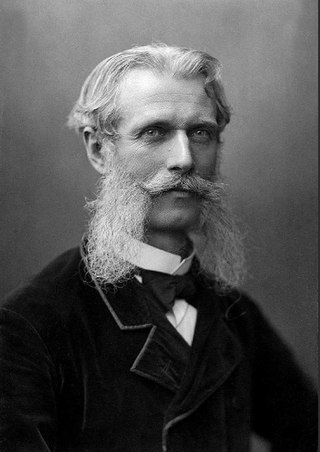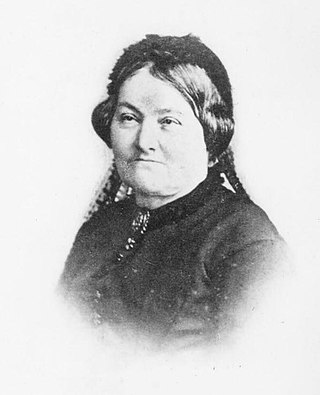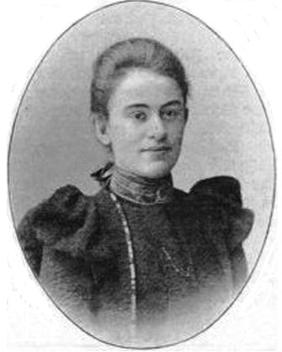Related Research Articles

Carl Andreas Hilty was a Swiss lawyer, professor of constitutional law, politician, philosopher, lay theologian and writer.

The Appenzeller Sennenhund is a Swiss breed of medium-sized working dog. It originates in the Appenzell region of north-eastern Switzerland, and is one of four regional breeds of Sennenhund or Swiss mountain dog, all of which are characterised by a distinctive tricolour coat.
Hanna Johansen, born Hanna Margarete Meyer, is a Swiss writer.
The Swiss Women's Cup is a women's football cup tournament that has been organised annually since 1975 by the Swiss Football Association (SFV-ASF).
Women in Switzerland gained the right to vote in federal elections after a referendum in February 1971. The first federal vote in which women were able to participate was the 31 October 1971 election of the Federal Assembly. However it was not until a 1990 decision by the Federal Supreme Court of Switzerland that women gained full voting rights in the final Swiss canton of Appenzell Innerrhoden.

Julie von May , was a Swiss feminist. In 1868, she became the chairperson of the first women's organisation in Switzerland: Association Internationale des Femmes. She supported women suffrage, but focused on equality before the law. She has been counted as perhaps the leading feminist of her country in her generation alongside Marie Goegg-Pouchoulin.

Antoinette Quinche (1896–1979) was a Swiss feminist and politician. She was president of the Schweizerische Aktionskomitee für Frauenstimmrecht from 1932 to 1959.
The Schweizerische Ausstellung für Frauenarbeit was an exhibition that took place in Bern in 1928 and in Zürich in 1958. SAFFA was organized by the Bund Schweizerischer Frauenvereine, the Swiss Catholic Women's League (SKF), and 28 other Swiss women's associations, to highlight the precarious situation of working women in the postwar years.
alliance F is the Federation of Swiss Women's Associations.

Marthe Gosteli was a Swiss suffrage activist and archivist. For thirty years, she led the fight for women's right to vote in Switzerland and then focused her attention on preserving the history of Swiss women. Creating an archive of women's biographies and history, Gosteli's work was recognized by many honours and awards, including the 2011 Swiss Human Rights Award.
Ida Hoff was a pioneering medical doctor in Switzerland. As a woman in a man's world she achieved a number of "firsts". She was the first woman to be employed as a school doctor in Bern. She was a feminist activist, although it was as much her lifestyle choices as her conscious activism that are remembered. In a traditionalist city in the conservative heart of Switzerland, Ida Hoff was one of Bern's first regular female motorists.

Anna Tumarkin was a Russian-born, naturalized Swiss academic, who was the first woman to become a professor of philosophy at the University of Bern. She was the first woman in Europe to be allowed to examine doctoral and professorial candidates and the first woman to sit as a member of a University Senate anywhere in Europe.
Monika Dettwiler is a Swiss-Italian journalist and author.

Hanny Johanna Hermina Thalmann was a Swiss women's rights activist and politician of the Christian Democratic People's Party. She was among the first ten women to seat in the National Council after women's suffrage was introduced in 1971.
Schweizerischer Verband für Frauenstimmrecht (SVF), was a women's organization in Switzerland, founded in 1909. It was one of the two main women's suffrage organisations in Switzerland, alongside the Bund Schweizerischer Frauenvereine (BSF).

Tamara Funiciello is a Swiss politician of the Social Democratic Party (SP).

Flavia Wasserfallen is a Swiss politician of the Social Democratic Party (SP) and a member of the Swiss National Council.
Beatrix Mesmer-Strupp was a Swiss historian of German origin. She was one of the first female Swiss professors, being a professor of Swiss history at the University of Bern from 1973 to 1996. Her research and work on Swiss women's history has had a considerable impact on the subject.
Georgine Gerhard was a Swiss school teacher and administrator who was forced by hearing loss to take early retirement. Her wider legacy comes from her campaigning. She was a women's rights activist and also backed various humanitarian causes. During the 1930s she turned her attention to the growing refugee crisis which re-emerged in Europe during the middle part of the twentieth century. In 1934 she established the Basel section of the "Schweizer Hilfswerk für Emigrantenkinder", following that organisation's foundation in Zürich by her fellow activist, Nettie Sutro-Katzenstein, the previous year.
Clara Winnicki became Switzerland's first qualified female pharmacist in 1905, and went on to open and operate a succession of pharmacies. Commercial success eluded her, however. By 2018 the profession had become highly feminised: more than two thirds of Switzerland's qualified pharmacists were female; but there are indications that during the early decades of the twentieth century her gender placed Clara Winnicki at a professional disadvantage. In 1925 she married a Swiss-based German pharmacist who was not permitted to practice his profession in Switzerland. As a result of marrying a foreign man Clara Winnicki lost her citizen's rights as a Swiss citizen. In 1933 the couple were expelled across the frontier into Germany, having been identified by the authorities as "foreigners without means of support".
References
- 1 2 3 4 5 6 Regula Ludi (16 January 2008). "Leuch [-Reineck], Annie". Historischen Lexikon der Schweiz, Bern. Retrieved 3 August 2018.
- ↑ Lotti Ruckstuhl-Thalmessinger (March 1979). "En mémoire d'Annie Leuch-Reineck ou Madame Annie Leuch". Nouvelles de Suisse. Femmes suisses et le Mouvement féministe : organe officiel des informations de l'Alliance de Sociétés Féminines Suisses.
{{cite web}}: Missing or empty|url=(help) - ↑ Jean-Pierre Bastian (2 November 2017). La fracture religieuse vaudoise, 1847-1966: L'Eglise libre, "la Môme" et la canton de Vaud. Labor et Fides. pp. 225–226. ISBN 978-2-8309-5077-9.
- ↑ Silke Redolfi: Frauen bauen Staat, 100 Jahre Bund Schweizerischer Frauenorganisationen, NZZ-Verlag Zürich, 2000, p. 70, ISBN 3-85823-819-8
- ↑ "P Vinet (Ecole) Volée 1900 de l'Ecole Vinet, 1900.10.12-1968.09.13 (Fonds)". Archives cantonales vaudoises. Retrieved 3 August 2018.
- ↑ Franziska Rogger. "Kropfkampagne, Malzbonbons und Frauenrechte ... Zum 50. Todestag der ersten Berner Schulärztin Dr. med. Ida Hoff, 1880–1952" (PDF). Berner Zeitschrift für Geschichte. pp. 105–106. Retrieved 3 August 2018.
- ↑ Annie Reineck (1907). Die Verwandtschaft zwischen Kugelfunktionen und Besselschen Funktionen. Universitat Bern.
- ↑ Christine Riedtmann. "Doktorandinnen in der Schweiz" (PDF). Wege von Frauen: Mathematikerinnen in der Schweiz. European Women in Mathematics. pp. 8–9. Archived from the original (PDF) on 11 January 2017. Retrieved 3 August 2018.
- ↑ Christoph Zürcher (16 September 2008). "Leuch, Georg". Historischen Lexikon der Schweiz, Bern. Retrieved 3 August 2018.
- ↑ Regula Stämpfli (2007). "Frauen scheren sich nicht um Politik" Wie Geschichte und Gegenwart Frauen aus der Politik rausdefinieren (PDF). Olympe: Feministische Arbeitshefte zur Politik. Vol. -25/26. pp. 9–16. ISBN 978-3-905087-48-2 . Retrieved 4 August 2018.